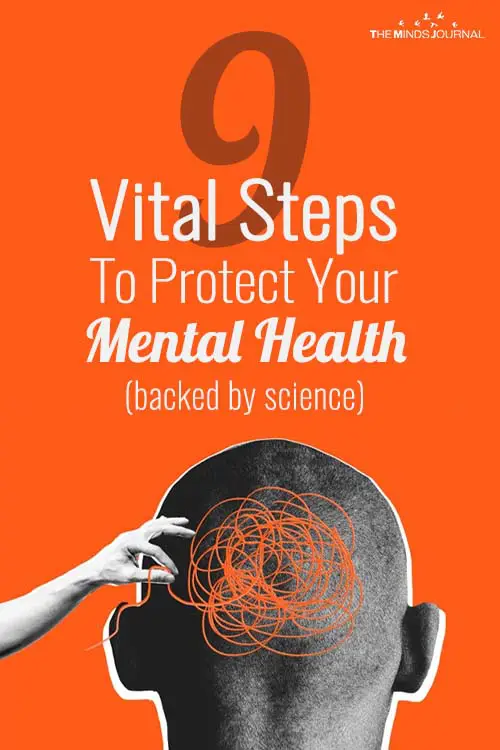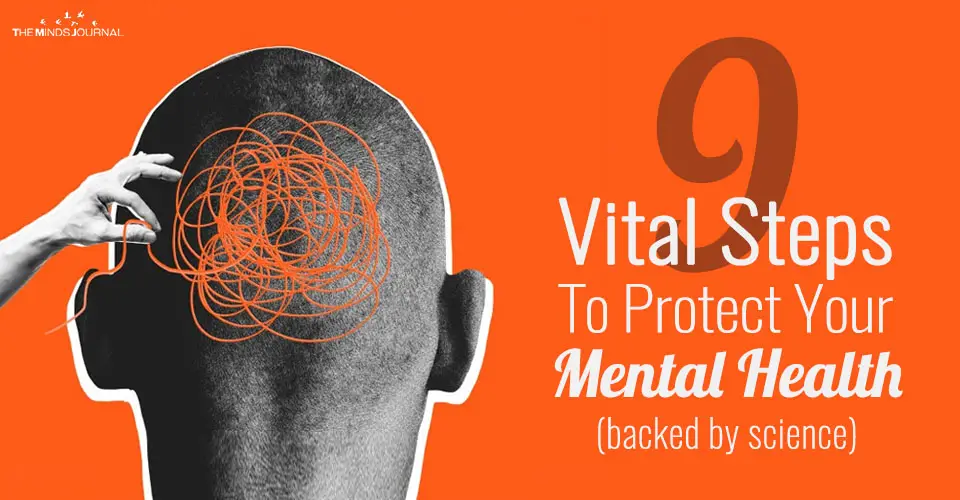Mental health is important and it should be treated exactly like that. Here are a few steps you can take to protect and elevate your mental health.
Few of us would argue that mental health should be low on our priority list. In theory, we know it matters—but then reality takes over.
Deadlines dominate. We’re too tired. The kids get sick. We get lost in the vortex of our screens.
Even in an era being called the “Age of Anxiety” and a “mental health crisis,” many of us struggle to place mental health on our never-ending lists, never mind keeping it at the top. Then the wake-up calls come.
The American Psychological Association reports that we often do not recognize our vulnerabilities to stress and mental health issues until we start to show up with physical health symptoms. This lines up with the World Health Organization’s grim report that by 2030, the stress-related illness will surpass communicable diseases.
While we cannot necessarily control the pressures of our modern demands or altogether skirt the inevitable sufferings of life, there is a wide range of activities backed by science that we can intentionally use to protect and elevate our mental health:
9 Activities You Can Do To Protect And Elevate Your Mental Health (backed by science)
1. Try therapy.
Having a trusted, licensed therapist with expertise in evidence-based modalities, such as cognitive-behavioral treatment, is worth its weight in gold. You can find a therapist who fits your distinctive needs through your primary care physician, health insurance company, Employee Assistance Program (EAP), word of mouth, and referrals from reputable organizations such as the American Psychological Association, the National Association of Social Workers, or here on Psychology Today.
2. Find community.
Isolation can quickly erode mental health. Loneliness is being called “the new smoking”—the health risk of our modern life, where we are more connected and disconnected than ever before. Relationships provide critical protection against loneliness and foster a sense of belonging that we are wired for. Finding people you can safely and openly share with can help curb self-doubt and provide needed support to navigate the joys and complexities of life.
Read : How To Set Boundaries To Protect Your Mental Health
3. Set boundaries.
You can’t say yes to everything and still have the time to make mental health a priority. Decide what’s most important, then make the decision to delegate, renegotiate, or change your responsibilities. Mental health can quickly erode in the face of too many yeses.
“Self-care is how you take your power back.”– Lalah Delia
4. Engage in mindful living.
Mindfulness activities, such as meditation, deep breathing, and yoga, have all been linked to elevated brain chemistry and lower levels of cortisol. Research shows that when we work to stay in the present moment and avoid the mindless trappings of overwork, “infobesity” (technology and news overload), being stuck ruminating over the past or locked in anticipatory anxiety over the future, we are more likely to thrive.
5. Break up with perfectionism.
Research shows that perfectionism can quickly spiral into strivings that become unhealthy. While pursuing rigorous goals can be healthy and lead to positive outcomes, expecting perfection and sustaining an inhumane schedule in the long haul can leave us at greater risk for mental health distress.
6. Take daily break rituals.
Carve out small chunks of time where you are focused on doing something that renews your mind, body, and soul. It can be singing in the car, brisk walks, deep breathing—anything that provides you respite and momentum along the way.
7. Practice self-care.
Prevention is less costly than repair. Research shows that taking the time to uphold lifestyle medicine principles, such as proper sleep, nutrition, and exercise, can provide the kind of lift that helps us regenerate.
“Lighten up on yourself. No one is perfect. Gently accept your humanness.”–Deborah Day
8. Find your fun and funny.
Humor is cited as a significant protective factor that contributes to resilience. When we take life too seriously, we can become cynical, jaded, and hypercritical. Taking time to be playful and silly can help break tensions that can have a negative cumulative effect on our well-being.
Read : How A Proper Healthcare Plan Can Add To Your Mental Wellbeing
9. Avoid consumerism.
The promise of retail therapy, being cool, or having status can lure us into spending money on stuff we don’t need. Research shows that when we move away from the “goods life” to the “good life”—one that focuses on spending our time and money on lasting things, like relationships and legacy, we will be more inclined to flourish and thrive.
Now is your chance to protect your mental health. Small things can make a big difference. Don’t try to do everything all at once. Pick one small change and start working on it. Notice impact. Build on the momentum slowly. Sustain your changes. You will notice that the more intentional and strategic you are, the more you can follow through.
Your mental health is everything. It’s more important than your grades, your job, your status, likes on your feed, and any other metrics of success. As the World Health Organization asserts, there is no health without it. How will you protect yours?
References:
Lee, K (2018). Mentalligence: A New Psychology of Thinking: Learn what it takes to be more agile, mindful and connected in today’s world. HCI Books: Deerfield Beach.
Written by Kristen Lee Ed.D., LICSW
Originally Published on Psychology Today
Your mind is the most important part of your body, so if your mind is not in the right condition, it will start affecting your life. Mental health should always be given its due importance, and these steps can largely help to protect your mental health.
If you want to know more about how a few steps can help protect your mental health, check out this video below:









Leave a Reply
You must be logged in to post a comment.